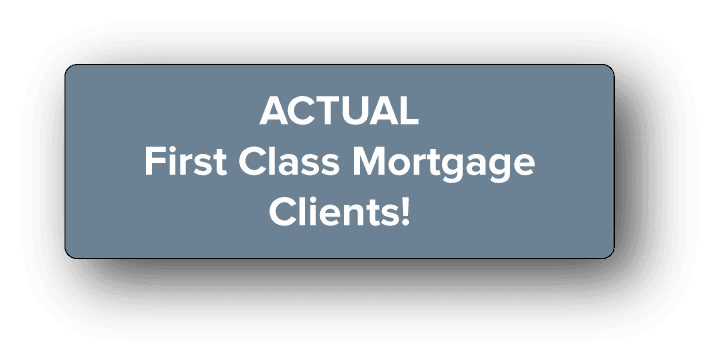Key Takeaways
- Cash-out refinance limits determine how much cash you can access from your home equity
- LTV ratios, credit scores, and loan type impact how much you can borrow
- A refinance for home improvement can add value, while debt consolidation reduces financial stress
- Increasing your credit score and paying down debt can help maximize cash-out limits
- Using a refinance mortgage calculator can show how much cash you can access and what it will cost
- Cash-out refinancing can be risky if you do not have a repayment plan in place
- Contact First Class Mortgage for personalized advice on how to use your home equity wisely
Cash-Out Refinance Limits for Debt Consolidation
Debt can add stress to everyday life, especially when it comes with high interest rates. If you own a home and have built up equity, a cash-out refinance can help you access cash to pay off debt. However, before you move forward, it is important to understand cash-out refinance limits and how they impact your borrowing power.
Cash-out refinance limits determine how much cash you can take out of your home’s equity. These limits are based on factors like your loan-to-value (LTV) ratio, credit score, and the type of loan you have. Understanding these limits helps you decide how much debt you can pay off and whether refinancing makes financial sense for you.
How Cash-Out Refinance Limits Work
When you refinance your mortgage, you replace your existing loan with a new one. With a cash-out refinance, the new loan is larger than the old one, allowing you to pocket the difference in cash. This cash can be used to consolidate credit card balances, personal loans, or other high-interest debt.
However, you cannot take out all your equity as cash. Cash-out refinance limits are usually capped at 80% of your home’s value for conventional loans. FHA loans may allow higher LTV ratios, but they also come with mortgage insurance costs. VA loans may let you borrow up to 90% or even 100% of your home’s value, depending on your lender.
For example, if your home is worth $300,000 and your lender allows an 80% LTV, the maximum loan amount is $240,000. If you owe $180,000 on your current mortgage, you could access up to $60,000 in cash.
How Cash-Out Refinance Limits Affect Debt Consolidation
If you want to use a cash-out refinance to pay off debt, you need to calculate how much cash you can actually get. Start by assessing your home’s current market value and subtracting your existing mortgage balance.
Keep in mind that the higher your LTV ratio, the higher the risk for lenders. If your LTV ratio is above 80%, you might face higher interest rates or additional fees. Checking your credit score can also impact your cash-out limits, as lenders often reserve the best rates for borrowers with strong credit.
Using a refinance mortgage calculator can help you run different scenarios and see how much cash you can access. This is also a good time to compare debt consolidation with other options, like a refinance for home improvement or a home equity line of credit (HELOC).
Refinance for Home Improvement vs Debt Consolidation
A refinance for home improvement is another popular reason to tap into home equity. Instead of paying off debt, you use the cash to update your kitchen, add a bathroom, or make repairs. This can add value to your home, making it a strategic investment.
Debt consolidation, on the other hand, does not add value to your home but can reduce financial stress. By rolling high-interest debts into your mortgage, you can lower your overall monthly payments and simplify your bills.
Before you decide between refinance for home improvement and debt consolidation, think about your long-term goals. Would you rather increase your home’s value or reduce your financial obligations? Talking with a trusted lender like First Class Mortgage can help you weigh the pros and cons.


How to Maximize Cash-Out Refinance Limits
If your goal is to get as much cash as possible, consider these strategies:
- Increase your credit score before applying. Higher scores can qualify you for better rates and higher cash-out limits.
- Pay down existing debt to lower your LTV ratio. Reducing your mortgage balance increases the amount of cash you can access.
- Get a home appraisal to confirm your home’s current value. A higher value may allow you to borrow more.
- Choose the right loan program. FHA and VA loans may have different cash-out refinance limits than conventional loans.
Working with a lender who understands cash-out refinance limits can help you explore all your options and avoid common pitfalls.
Risks of Cash-Out Refinance for Debt Consolidation
While cash-out refinancing can be a smart way to pay off debt, it also comes with risks. You are converting unsecured debt, like credit cards or personal loans, into secured debt backed by your home. If you cannot keep up with your mortgage payments, you could risk losing your home.
You may also face higher interest rates, closing costs, or longer loan terms, which could offset the financial benefits. Always run the numbers through a refinance mortgage calculator to see how refinancing will impact your overall finances.


How First Class Mortgage Can Help You Make the Right Move
Navigating cash-out refinance limits can feel overwhelming, but you do not have to do it alone. At First Class Mortgage, we can walk you through your options, explain how much equity you can access, and help you decide whether debt consolidation or a refinance for home improvement makes the most sense.
We specialize in helping homeowners use their home equity wisely, whether you are paying off debt or investing in your property. Schedule a call with us today to discuss your goals and get personalized advice.
First Class Mortgage
First-class service. First-class knowledge. A first-class experience. We are staffed and operated by people who understand that each customer is special and individual attention is necessary to satisfy each unique financial situation. That’s why at First Class Mortgage, we have simplified the mortgage process.
Locally owned. Connected nationwide.


